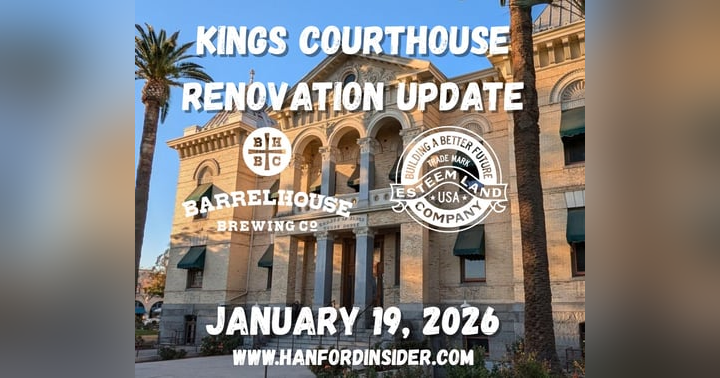Board of Supervisors - Doug Verboon
In a revealing conversation on The Hanford Insider podcast, Kings County Board of Supervisor Doug Verboon provided valuable insights into ongoing county projects and his approach to public service. As a fifth-generation resident of the Central Valley with 32 years in local politics, Verboon brings a unique perspective shaped by deep community roots and extensive experience in governance.
The transformation of Kings County's abandoned hospital stands as one of the Board's most notable achievements. What was once an eyesore has been masterfully repurposed into a comprehensive behavioral health facility. This three-story building now serves as a one-stop resource center for mental health services and homelessness issues, significantly improving accessibility for residents in need. The successful renovation has become a model for future county building projects, with Verboon expressing interest in creating matching structures to enhance the government center's aesthetic appeal and functionality.
Transportation infrastructure remains a top priority for the county, with Verboon detailing his multi-faceted approach to securing funding. As Chairman of Amtrak San Joaquin and a member of various regional transportation committees, he leverages these positions to advocate for Kings County's interests. His recent success in securing $2 million for a Grangeville Boulevard crossing study demonstrates the effectiveness of persistent advocacy. The funding, part of $81 million secured for various projects, will help address the significant traffic congestion issues affecting Hanford residents.
Water management emerged as perhaps the most critical challenge facing Kings County, with Verboon noting, "If we don't have access to water, we lose our income from the farming community and go backwards." This succinct statement encapsulates the existential threat that water scarcity poses to the region's agricultural economy. Though he mentioned that a comprehensive discussion on water issues would require hours, Verboon emphasized its paramount importance to the county's future prosperity.
The homelessness crisis presents complex challenges requiring nuanced solutions. Verboon described the multifaceted nature of homelessness, distinguishing between those experiencing temporary hardship and individuals struggling with substance abuse or mental health issues. He highlighted the county's partnership with Kings County Action Organization to develop low-barrier shelters and supportive services. The delicate balance between addressing homelessness compassionately while also protecting business interests and taxpayer concerns illustrates the complex dynamics county supervisors must navigate.
Verboon's approach to governance reflects his pragmatic philosophy of building relationships across political divides. "I don't look at Republican or Democrat," he explained, noting that he received more funding from the Biden administration than previous administrations. This non-partisan approach to problem-solving, focused on effective storytelling and project presentation, has proven successful in securing resources for Kings County residents.
The supervisor's emphasis on teamwork underscores the collaborative nature of effective county governance. Acknowledging key staff members, including new CAO Curie Martinez and outgoing Sheriff Dave Robinson, Verboon celebrated the stability and cohesiveness that allows the county to function efficiently. His warning against social media distractions and advocacy for independent decision-making offers wisdom applicable beyond government circles.
For Kings County residents, the interview provided valuable transparency into ongoing projects and the decision-making processes that shape their community. From fire station improvements to bridge reconstructions, Verboon's updates offered concrete examples of how county government impacts daily life. As Kings County continues to evolve, the perspective of experienced public servants like Verboon provides essential context for understanding the complex interplay of local governance, state regulations, and federal funding that determines a community's trajectory.









